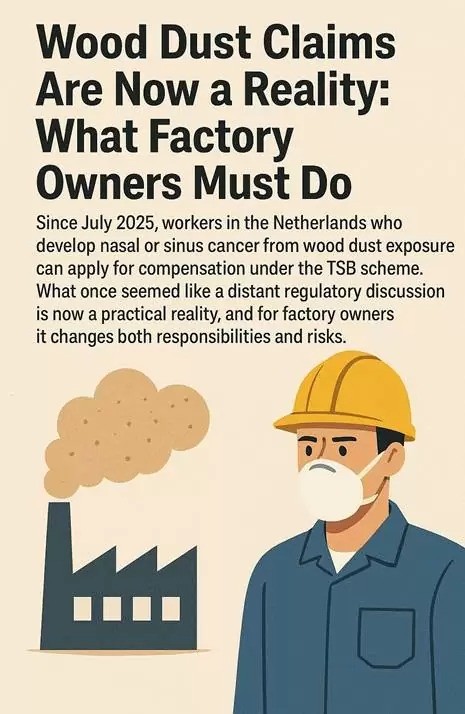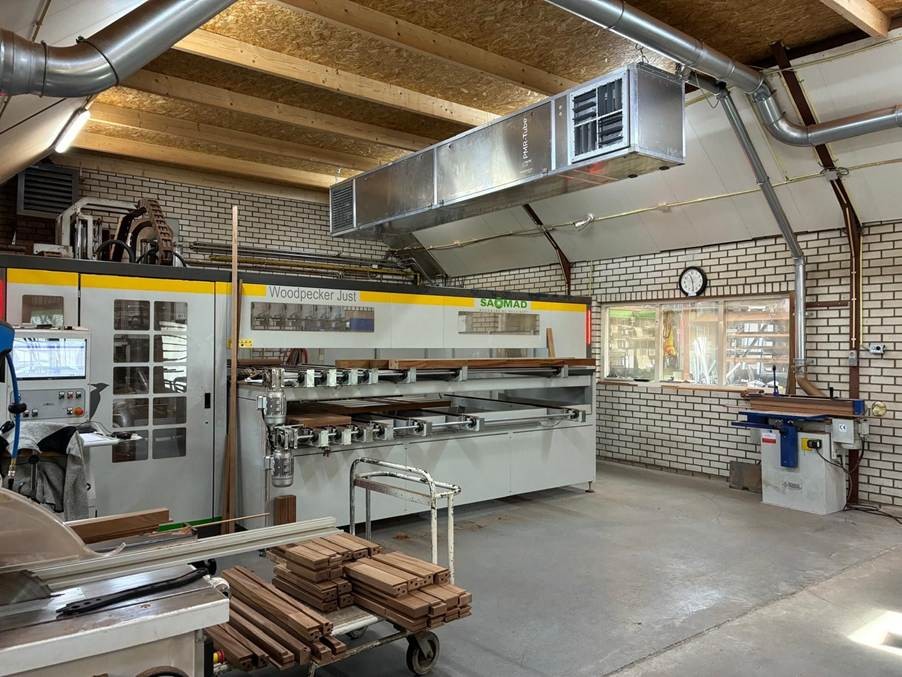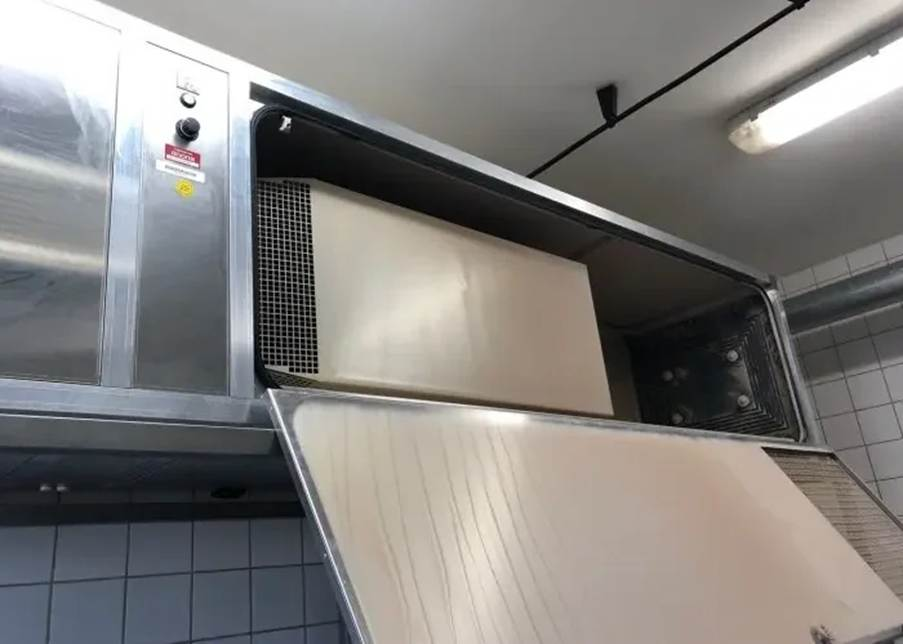
Since July 2025, workers in the Netherlands who develop nasal or sinus cancer from wood dust claims exposure can apply for compensation under the TSB scheme. What once seemed like a distant regulatory discussion is now a practical reality, and for factory safety & owners it changes both responsibilities and risks.
Why this matters
Most woodworking plants rely on extraction systems. These are essential for removing chips and visible dust, but they leave behind the fraction that now matters most — fine airborne particles that stay suspended in the hall. It is this fraction that is linked to the cancers recognized under the TSB scheme.
For companies, the consequences are no longer theoretical. A successful claim brings a payout of €25,679, older cases that were previously denied may now be reopened, and inspectors as well as insurers will want more than proof that extraction is in place. They will expect evidence that fine airborne dust is being controlled across the production environment.
Closing the gap
Extraction handles what you can see. What it misses are the particles that travel through the air, settle in rafters, and circulate during shifts. To reduce risk under the new scheme, factories need continuous control of airborne dust.
This is the role of the PMR-Tube. Built for industrial halls, it reduces fine particles in the air by more than 80 percent in real working conditions. Units can be scaled across large spaces, and in most cases they operate without filters thanks to ionization technology. For areas with higher dust loads, a Triple Protection version with filters and UVC is available. Each unit runs quietly, consumes little power, and includes LED and IoT functions that provide visible proof of performance — a feature that carries weight when inspections or claims arise.
Moving forward
Some companies are waiting until a claim or inspection forces their hand. Others are already reviewing their exposure records, measuring fine dust levels, and installing systems that bring airborne concentrations down to safer levels. These steps protect workers, but they also protect the business by creating a defensible record of action.
The expansion of the TSB scheme has made fine airborne dust a matter of compliance as well as health. Factories that respond now will be better placed for inspections, for claims that may resurface, and for the long-term trust of their employees.
The PMR-Tube provides a practical way to achieve that — giving factory owner liability a reliable method to reduce exposure and keep operations on solid ground.
Learn more on the PMR-Tube product page, or contact our team to discuss how it can be applied in your facility.




